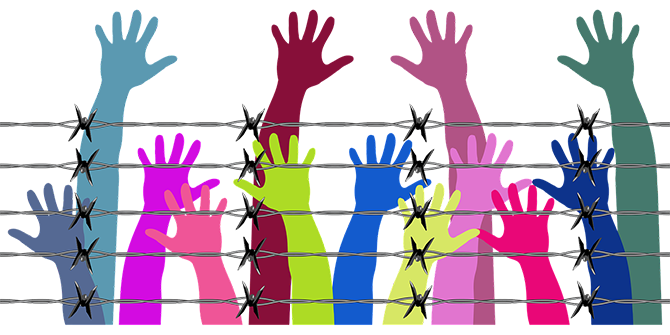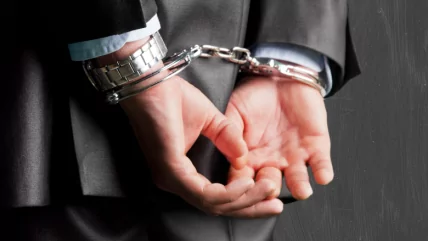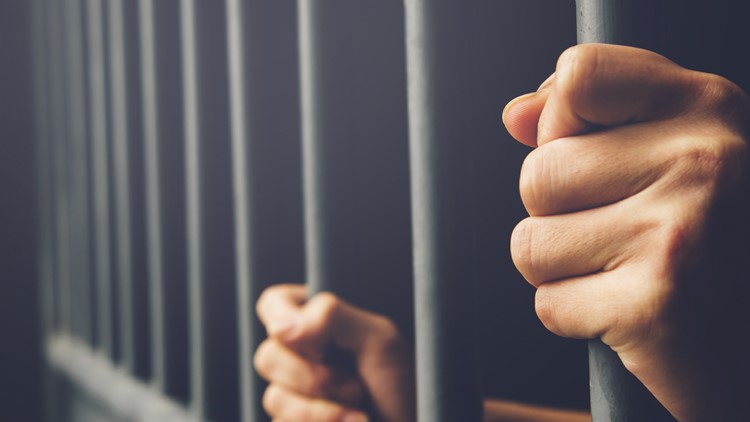Dear Beamers,
Greetings! In line with our dedication to delivering thorough insights and updates, we are pleased to explore the current condition of the Nigerian Correctional Service in this week’s edition of our newsletter. Though the prospect of dealing with prisons is not one most aspire to, it is essential to recognize that these facilities serve as a societal sieve, delineating boundaries between law-abiding citizens and those who have transgressed the law.
In Nigeria, instances of criminal behavior and delinquency are prevalent. Recently, the nation has experienced an escalation in serious criminal activities, including armed robbery, kidnapping, drug trafficking, fraud, traffic offenses, rape, murder, and theft. Addressing these issues has become increasingly challenging due to the emergence of new methods and techniques employed by perpetrators.
Under the leadership of President Buhari, the Nigerian Prison Service (NPS) underwent a renaming to become the Nigerian Correctional Service (NCoS), reflecting a strategic shift in the conceptualization of the prison system in Nigeria. This alteration aimed to emphasize rehabilitation and reform, pivoting away from the punitive ethos inherent in the previous system, which centered on retribution. The intention is to underscore correction and the purification of human behavior as integral components of the revised approach.
However, the Nigerian correctional system, in its pursuit of noble aims to facilitate meaningful transformation in individuals with criminal histories, faces enduring challenges hindering the realization of these objectives.
The correctional facilities exhibit outdated infrastructure and warrant improvements across various dimensions. Notably, these facilities play a pivotal role in maintaining peace and tranquility within society by detaining individuals deemed disruptive. The primary aim of reforms is to exclude unruly citizens from the broader community. However, the recurrent issue lies in the reintegration process, as these individuals often manage to re-enter society without completing their prescribed punishment cycle, thereby compromising the ostensibly rehabilitated environment with their illicit activities.
Okafor Maverick, a human rights activist dedicated to fostering social change, asserts that,
“During President Muhammadu Buhari’s tenure, there were not just a few, but at least 14 jailbreaks. This paints a concerning picture of the government’s efforts to genuinely protect society, given that these criminals were initially imprisoned for causing trouble. Now, they’ve been released in large numbers into a society that was supposed to be rid of them. Among these unleashed prisoners are hardened criminals with a high likelihood of committing more severe crimes. It’s crucial for the government to address this issue, particularly by categorizing prisoners into facilities based on the gravity of their offenses.”

The justice system has exhibited inefficiencies and demonstrated unfairness in cases where certain citizens are apprehended and incarcerated without affording them a platform to exercise their right to a fair hearing in a court of law. Instances of offenses that could be judiciously resolved through alternatives to imprisonment, such as probation, fines, community service, and restitution, remain unaddressed in some court proceedings.
A significant number of inmates within Nigeria’s correctional facilities are awaiting trial for offenses of which they are innocent. This unfortunate circumstance has led to pronounced prison congestion, creating a substantial disparity between the facilities’ intended capacity and the actual number of occupants. Consequently, the security of these facilities is compromised, rendering them vulnerable to breaches. It is imperative to administer justice with swiftness and fairness to alleviate the existing strain on the prison system and enhance its overall effectiveness.
The prevalent issue of prison congestion poses a substantial challenge to correctional facilities in Nigeria. Overcrowding is attributable to various factors, including prolonged pre-trial detentions, substandard prison conditions, and a scarcity of educational and vocational training programs. These challenges stem from insufficient financial, infrastructural, and logistical resources.
Within the United Nations system, inmates undergo classification based on their risks and the gravity of their committed crimes. The overdue re-categorization of correctional facilities in Nigeria is particularly pertinent given the prevailing threats of terrorism, banditry, and kidnappings. This realignment aims to ensure that individuals with criminal histories are housed in facilities commensurate with the severity of their threat to society and the significant danger they pose to national security. Suspected and convicted terrorists should be securely held in facilities designed for high-level security rather than those designated as medium security.
Akran Victor emphasizes the imperative of constructing and furnishing facilities tailored to accommodate diverse categories of inmates in a meticulous manner. In his words
“The current setup puts repeat offenders and hardened inmates in the same facilities as minor and first-time offenders. This poses a significant danger because achieving the goal of correction becomes challenging when individuals less prone to criminal activities can be bullied or negatively influenced by those with a strong inclination towards committing crimes.”
Effectively removing criminals from the streets is a costly endeavor, given the requisite precision and information needed to apprehend them in the act. Attempts to undermine these efforts compromise the integrity of the criminal justice system and disrupt the rehabilitation process for inmates.
Rehabilitation services are entrusted with the secure custody of legally interned individuals. Nevertheless, the comprehensive implementation of inmate welfare in certain prisons is inadequately addressed, posing a significant area of concern.
Obianwu Christine believes that the substandard welfare conditions for inmates may result in some individuals being ill-equipped to meet their daily necessities upon release, thereby complicating their successful integration into the community. According to her
“Fixing offenders is a must, but it’s crucial to do it without violating their rights. The government must seriously look into the conditions of those behind bars, as some staff using torture methods goes against UN standards.”
She added “As regards their career, it’s not just about making them work; there should be a focus on skill training and vocational development in prisons. The goal of prison is to turn someone’s life around entirely, not just in their job but in every aspect. Equipping them with knowledge is key for their transition back into the real world after release.”

A prison serves as a space for individuals to reflect on the mistakes that led to their arrest, allowing inmates to gain insights by sharing experiences with more knowledgeable peers. However, a lack of sufficient rehabilitation opportunities, including skills training and capacity building, often results in a released prisoner returning to society with an augmented sense of hostility towards it.
An individual who has been incarcerated often harbors a strong desire for vengeance, viewing themselves as a victim rather than someone who has undergone correction. Moreover, such an ex-convict is prone to causing more harm than good to a society perceived as inherently oppressive. This circumstance significantly elucidates why a considerable number of Nigerian ex-prisoners become recidivists.
Ogechi Jennifer contends that training serves as a potent tool to rehabilitate individuals from their state of brokenness. In her perspective,
“Prison becomes a place not just for reflection on mistakes but an environment where inmates can gain insights by sharing experiences with knowledgeable peers. Inactivity among inmates can potentially lead to the refinement of criminal skills through interactions with others. Hence, training becomes essential to ensure that the skills acquired during rehabilitation are applied for a law-abiding life in society.”
She added, “To effectively deter offenders from a life of crime, a diverse range of programs is vital. Involvement in activities that make crime unattractive, such as engagement with moral or religious institutions, education, and vocational training, is crucial.
Positive transformation is attainable for all individuals, including prison inmates who can evolve into productive citizens. However, this positive change necessitates a degree of personal sacrifice from the inmates, coupled with substantial support from government and concerned agencies. To facilitate meaningful rehabilitation within prisons, there is a need to enhance rehabilitation services, particularly in aspects related to security.
Ensuring sufficient security within correctional facilities necessitates an immediate investment in modern technology. Surveillance systems and alarm systems should be strategically installed at critical points and all exits of the prison. Shifting from traditional data, the records of inmates should be comprehensively captured through biometrics and stored in secure cloud repositories. This approach serves as a deterrent and streamlines the process of recapturing any potential escapee. Proper classification and documentation of these records are essential for organizational purposes.
According to Salam Salam, a dweller in the environs of yaba Lagos,
“The government must urgently reassess the budget for correctional facilities, acknowledging their growing role in managing crime. Financial injections are necessary to overhaul prisons, addressing issues such as security, feeding, and the living conditions of inmates.”
He added, “Motivating prison staff is necessary for job commitment and improved performance. This can be achieved through ongoing training programs, supported by both governmental and non-governmental organizations that stay abreast of the latest trends in criminality. Additionally, prison managers need proper training to handle the challenges posed by the most violent and extremist prisoners, as well as effectively manage incidents of violence within prison walls.”

It is essential to guarantee that detainees and prisoners have equitable access to justice, are treated with respect for their human dignity, and are equipped to achieve self-sufficiency upon release. This proactive approach is instrumental in reducing the risk of recidivism, as individuals are less susceptible to enticement or recruitment by criminal organizations following their release.
The existence of prisons is essential in maintaining order and upholding morality within a civilized society. However, given the numerous flaws evident in Nigeria’s correctional service, it becomes imperative for every citizen to collectively address these shortcomings.
Allowing an unreformed, hardened criminal back into society is akin to introducing a potential threat, emphasizing the importance of comprehensive reforms. As a nation, we are on the verge of achieving numerous milestones, but the government must prioritize the establishment of a lawful society through meticulous reforms. Ensuring the health and well-being of present and future Nigerians hinges on the thoughtful consideration and implementation of these reforms.




